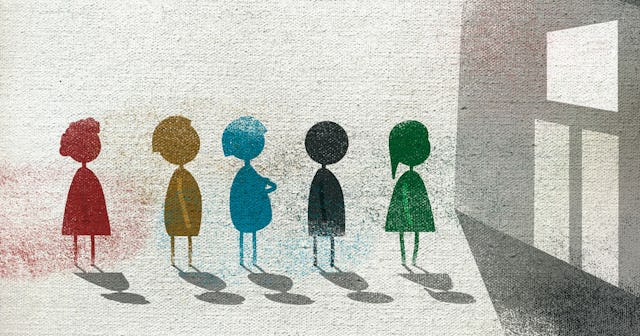The Hardest Decision I Ever Had To Make Was To Send My Tween To A Residential Treatment Center

Hands down the hardest decision I have had to make in my life was the decision to send my 12-year-old son to a residential treatment center for his severe behaviors and devastating depression. The second hardest decision I had to make was when to bring him home. After eighteen months away from home, everyone involved in his care and development took that leap, and he returned.
This move was predicated on putting together an educational and therapeutic plan that was almost a full year in the making. In a state that has the seventh or eighth gross domestic product in the world, and a city that is second in the country, there are amazingly few options for educating and supporting a son like mine.
Choosing a school is made even more challenging by the fact that Timothy’s disability is not immediately evident. His struggles unfold over time when he gets more comfortable, when the social and academic demands increase, and when he feels that he is not liked or understood. Prior to therapeutic residential school, Timothy’s experience of school — whether it be public, private or non-public — largely consisted of teachers, aides, and administrators focusing on his unacceptable behaviors rather than investigating what lies beneath them. In short, he was generally sent out of the classroom, isolated and punished, and told that he was disruptive to the learning environment and made to feel like a bad kid. This even occurred in a behavior program housed in a non-public school. Following years of this experience, Timothy’s self-esteem plummeted and his depression began.
Don’t get me wrong, Timothy’s actions and words can be extraordinarily challenging. His autism does not allow him to understand the boundary between appropriate humor and pushing a joke to a cringe-worthy level. All he feels and sees is people laughing and that is his cue to keep going, probably because he feels accepted and appreciated; something that he missed for so long. He also takes on personas, language, and ways of dressing that also make adults uncomfortable and are possibly distracting for kids. His words can sound disrespectful, demanding, or blunt. And, yes, he can sound rude. I deeply understand the difficulty of teaching or running a school that will find a way to include, accept, and work through these behaviors that can be disruptive and upsetting at times.
Malte Mueller/Getty
For this reason, the year before Timothy returned, I researched and met with all of the available school options in our town. He visited for a public school assessment and IEP, and spent a whole day at two private schools with autism programs. I also looked into individual tutoring centers. After much back and forth, I chose the private school with the autism program embedded in a general education setting. Timothy was doing so well and hoped to mainstream within a year or two. The school loved him, despite the detailed descriptions that they read in years of reports of where his behaviors could go in times of overwhelm and stress. I even told them that while he had made profound changes, and was no long posturing when cornered, or running from the classroom, he was still sassy and did not always know what appropriate was. As all the other programs in Timothy’s past had always said, they looked his father and I in the eye and said, “This is what we do.” And once again, we believed them.
After 18 months of knowing that if Timothy was having issues, every attempt would be made to address the antecedent trigger and his state of emotional regulation, and to resolve things without judgment or shaming, I trusted this school to try to understand and care for my child. But, once again, that trust was misplaced. After months of ups and downs, and regular phone calls calling his behavior “ disrespectful and disruptive,” the school gave us notice that he should probably leave. He was not getting kicked out, and the door was to stay open in the event that he gets to a more acceptable place, but it was time to go.
In just the weeks before this call, I had hired an educational therapist to help with the lack of academic fundamentals that were being revealed (and likely resulting in some of his dysregulation) to come work with him at school for hundreds of dollars a week on top of his tuition. Additionally, I hired a math tutor to teach him individually since he was so far behind. And, I had fast tracked a psychiatry appointment to get him back on the ADHD medications that he had not needed in the therapeutic setting. He was on the medication for three days and saw the educational therapist twice before the school gave us the heads up that he was nearing expulsion.
Devastation does not express where this turn of events has left our family. It is always hard to tell exactly what Timothy is feeling. He is a trouper, and since it has been all that he has known, he just moves on to the next plan and the feelings come up in little things that he says about himself, or how motivated he is to do his usual activities. He is faring much better than the rest of us who are left in a pile of reemerging traumatic feelings, and disbelief that we trusted again and that Timothy was failed once more by a system that really cannot truly embrace difference. But somehow I still have hope because I know that as challenging as this boy is, he is also amazing and resilient and carries with him gifts that are evident to anyone who cares to see and accept him.
This article was originally published on